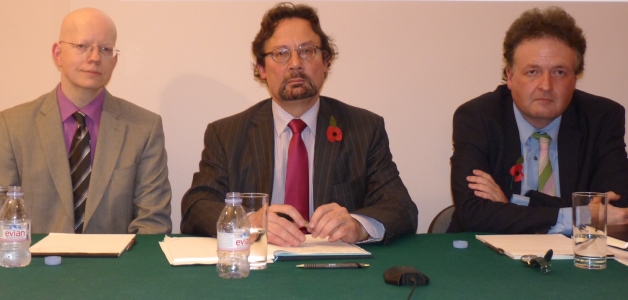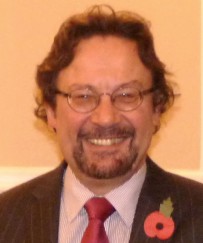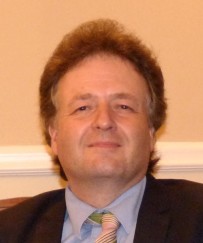 Seminar
SeminarThursday 30 October 2014
6:00pm – 7:00pm
Fukushima Daiichi: Coping after a major nuclear accident
Drinks reception from 8:00pm
13/14 Cornwall Terrace (Outer Circle), London NW1 4QP
Organised by The Daiwa Anglo-Japanese Foundation
It is clear from the accidents at Chernobyl (1986) and Fukushima Daiichi (2011) that severe nuclear accidents can occur, even if infrequently, meaning that coping strategies need to be developed in advance. Results will be presented from the UK/India NREFS research project (Management of Nuclear Risk Issues, Environmental, Financial and Safety), aimed at determining how best to manage in the aftermath of a major nuclear accident.
Any mitigation strategy adopted will find itself in the spotlight of national and world opinion, and needs to be capable of rigorous justification, both to experts in the field and also to politicians and the general public, who have a particular fear of nuclear radiation.
The NREFS project considers post-Fukushima lessons from a broader public policy perspective, in particular examining the history of nuclear siting decisions, evolving legal considerations, accident mitigation policies (safety, environmental protection and energy security) and the role of insurance in dealing with severe accident risks.
Professor Philip Thomas and his team have developed the J- or Judgement-value method, which provides recommendations to decision makers in high hazard industries on how much ought to be spent to protect both humans and the environment. Results relevant to both Chernobyl and Fukushima Daiichi will be presented, including an analysis of the relocation strategy, agricultural remediation and urban clean-up measures. The relatively low loss of life expectancy faced by even those members of the public most under threat at Chernobyl has not been widely appreciated. The analysis shows that the late relocation of a quarter of a million people at Chernobyl was economically unjustified. The relevance for the significantly smaller radioactive release at Fukushima Daiichi was covered in discussion.
Professor Nuttall Powerpoint Presentation
About the contributors

Professor Philip Thomas
Professor Philip Thomas is Professor of Engineering Development at City University London, and is also the Principal Investigator for a UK/India collaborative research project on the Management of Nuclear Risk Issues, Environmental, Financial and Safety (NREFS). He headed several Departments within the UK Atomic Energy Authority and was Customer Project Manager for the £100M project to decommission a nuclear power plant to green field status

Professor William Nuttall
Professor William Nuttall is Professor of Energy at The Open University and Fellow of Hughes Hall, University of Cambridge. His research centres on nuclear energy, the nuclear fuel cycle and possibilities for advanced nuclear energy technologies. His book, Nuclear Renaissance: Technologies and Policies for the Future of Nuclear Power, reflects his interest in not only the technical but also the commercial, strategic and political issues.

Dr Ian Waddington
Dr Ian Waddington took a doctorate in astrophysics and now works as a software developer at Ross Technologies, leading on the computing aspects of the J-value. He has carried out extensive work for the NREFS project, applying J-value and related techniques to judge the rationality of actions taken after the nuclear reactor accidents at Chernobyl in 1986 and at Fukushima Daiichi in 2011.